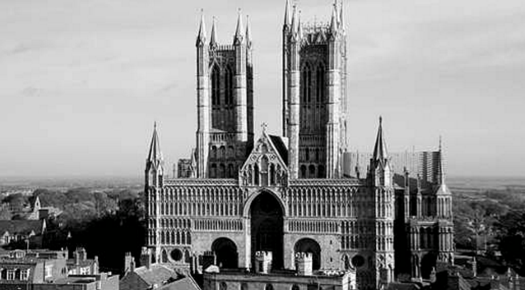
Approximately 1,500 years after England’s first church was founded by St. Augustine of Canterbury in 597 A.D., Britons have been informed in no uncertain terms that they are no longer living in a Christian country. The Commission on Religion and Belief in British Public Life released a sensational report earlier this month, challenging the country’s longstanding moral and public values system.
In language that raises not only eyebrows but also tempers, the report advised the United Kingdom to make a shift towards a more pluralist society by cutting down the Christian tone of major state occasions. It elaborated that events such as coronations should be made more inclusive while the number of bishops in the House of Lords should be reduced to make way for representatives of other religions. The recommendations of the commission, headed by former High Court judge Baroness Elizabeth Butler Sloss, draws attention to major changes in British society, including the decline of those that identify as Anglican, from 40 percent in 1983 to 20 percent in 2013.
Even though the commission is comprised of academicians and leaders from every major religion, a spokesperson for the Church of England criticized the findings as being dominated by an antiquated view that traditional religion is becoming less important and non-adherence to any religion is the same as secularism or humanism. This may have been a reference to the commission’s suggestion for a new policy on religion and belief that the United Kingdom will offer space to all in society, irrespective of their beliefs or the complete absence it.
According to royal sources, 67-year-old Prince Charles would sympathize considerably with some of the commission’s recommendations, as the heir to the throne has frequently said, when king, he would want to defend all faiths, not only “the faith”.
Some of the recommendations made by the commission are as follows:
- Introducing a secular statement of values to govern public life as an alternative to the little-understood but much-proclaimed adherence of “British” values.
- Calling off religious assemblies for pupils as well as stopping the segregation of children by religious affiliation at schools and across the country.
- Ending the tenure of 26 Anglican male bishops in the House of Lords and replacing them with non-Christian clerics, Jewish rabbis and Muslim imams.
- Altering the coronation service for the next monarch so that other faith leaders also play important roles in the state ceremony.
- Rethinking the government’s anti-terror policy so that religious views can be expressed at institutions and universities by teachers and preachers, who are currently thought to be extremists by intelligence and security networks.
Almost two years old, the report was made by Woolf Institute at Cambridge University, which is Britain’s leading think tank that studies relations between Christian, Muslim and Jewish communities.
Some Christians have gone on to say that the commission’s report is the brainchild of secularists and humanists, with the Church of England damning its recommendations as seriously misguided. The church was established in the 16th century and its Supreme Governor is Queen Elizabeth II, whose designation is “defender of the faith”.
At her coronation in 1953, Queen Elizabeth swore “to uphold the laws of God and the true profession of the Gospel, maintain the Protestant reformed religion established by law and preserve the settlement of the Church of England.”
During her coronation, there was not a single reference to a religion apart from Christianity or a denomination other than the Church of England but that was more than 60 years ago, when most Britons were asked to fill forms, asking their religious affiliation by choosing C of E for Church of England, whether they go to church on Sundays or they do not.
Photo Credits: Gizmondo
